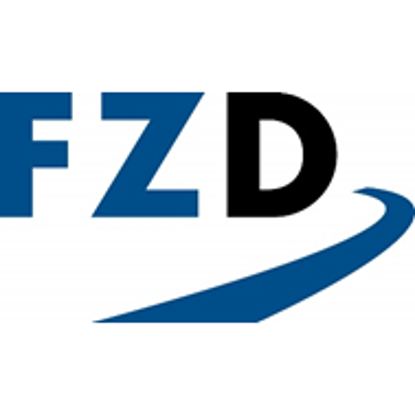The Department of Automotive Engineering offers individual measurement services in the field of vehicle dynamics:
- Execution of vehicle dynamics tests on the test grounds of the TU Darmstadt or external test sites
- Evaluation of vehicle dynamics tests
Based on the research results in the areas of parameterization and validation of vehicle dynamics simulation models, FZD also offers services in these areas:
- Parameterization of vehicle dynamics simulation models (e.g. IPG Car Maker)
- Validation of existing parameter data sets and vehicle dynamics simulation models (e.g. IPG Car Maker)
Measurement Devices
The following sensor technology is available for tests and studies:
- Force measuring rims (A&D Wheel Force Sensor) for measuring the forces and torques at the wheel hub
- Wheel position sensors (A&D Wheel Position Sensor) for measuring wheel movement relative to the vehicle body (kinematics & elastokinematics) in road tests
- Laser ground sensors (A&D Laser Ground Sensor) for measuring wheel movement relative to the road surface
- Inertial measuring unit ADMA (Automotive Dynamic Motion Analyzer) for measuring acceleration and rotation rates as well as position data with internal RTK2-DGPS receiver and DGPS base station
- Correvit sensors for measuring the longitudinal and lateral speed and the slip angle
Integration into different test vehicles
By means of a modular platform, the measurement technology can be easily integrated into different vehicles and trunk geometries (high / elongated trunks or compact car / limousine). The force measuring hubs are mounted to the wheel hub of the vehicle by means of mechanical adaptions.
Testing grounds
The August-Euler airfield in Griesheim is available as a test site. The site includes a runway (length: 1150 m width: 20 m), a taxiway, an open space (80 m x 40 m) and a circular runway (radius: 10 m). The runway and taxiway are connected to each other so that different corner radii are available.
Test evaluation
In addition to the transfer of measurement data in common data formats, it is also possible to evaluate the tests according to scientific criteria and to develop new customer-specific evaluation algorithms.
Sources

Error on loading data
An error has occured when loading publications data from TUbiblio. Please try again later.
-
{{ year }}
-
; {{ creator.name.family }}, {{ creator.name.given }}{{ publication.title }}.
; {{ editor.name.family }}, {{ editor.name.given }} (eds.); ; {{ creator }} (Corporate Creator) ({{ publication.date.toString().substring(0,4) }}):
In: {{ publication.series }}, {{ publication.volume }}, In: {{ publication.book_title }}, In: {{ publication.publication }}, {{ publication.journal_volume}} ({{ publication.number }}), ppp. {{ publication.pagerange }}, {{ publication.place_of_pub }}, {{ publication.publisher }}, {{ publication.institution }}, {{ publication.event_title }}, {{ publication.event_location }}, {{ publication.event_dates }}, ISSN {{ publication.issn }}, e-ISSN {{ publication.eissn }}, ISBN {{ publication.isbn }}, DOI: {{ publication.doi.toString().replace('http://','').replace('https://','').replace('dx.doi.org/','').replace('doi.org/','').replace('doi.org','').replace("DOI: ", "").replace("doi:", "") }}, Official URL, {{ labels[publication.type]?labels[publication.type]:publication.type }}, {{ labels[publication.pub_sequence] }}, {{ labels[publication.doc_status] }} - […]
-
Number of items in this list: >{{ publicationsList.length }}
Only the {{publicationsList.length}} latest publications are displayed here.

Error on loading data
An error has occured when loading publications data from TUbiblio. Please try again later.
-
{{ year }}
-
; {{ creator.name.family }}, {{ creator.name.given }}{{ publication.title }}.
; {{ editor.name.family }}, {{ editor.name.given }} (eds.); ; {{ creator }} (Corporate Creator) ({{ publication.date.toString().substring(0,4) }}):
In: {{ publication.series }}, {{ publication.volume }}, In: {{ publication.book_title }}, In: {{ publication.publication }}, {{ publication.journal_volume}} ({{ publication.number }}), ppp. {{ publication.pagerange }}, {{ publication.place_of_pub }}, {{ publication.publisher }}, {{ publication.institution }}, {{ publication.event_title }}, {{ publication.event_location }}, {{ publication.event_dates }}, ISSN {{ publication.issn }}, e-ISSN {{ publication.eissn }}, ISBN {{ publication.isbn }}, DOI: {{ publication.doi.toString().replace('http://','').replace('https://','').replace('dx.doi.org/','').replace('doi.org/','').replace('doi.org','').replace("DOI: ", "").replace("doi:", "") }}, Official URL, {{ labels[publication.type]?labels[publication.type]:publication.type }}, {{ labels[publication.pub_sequence] }}, {{ labels[publication.doc_status] }} - […]
-
Number of items in this list: >{{ publicationsList.length }}
Only the {{publicationsList.length}} latest publications are displayed here.

Error on loading data
An error has occured when loading publications data from TUbiblio. Please try again later.
-
{{ year }}
-
; {{ creator.name.family }}, {{ creator.name.given }}{{ publication.title }}.
; {{ editor.name.family }}, {{ editor.name.given }} (eds.); ; {{ creator }} (Corporate Creator) ({{ publication.date.toString().substring(0,4) }}):
In: {{ publication.series }}, {{ publication.volume }}, In: {{ publication.book_title }}, In: {{ publication.publication }}, {{ publication.journal_volume}} ({{ publication.number }}), ppp. {{ publication.pagerange }}, {{ publication.place_of_pub }}, {{ publication.publisher }}, {{ publication.institution }}, {{ publication.event_title }}, {{ publication.event_location }}, {{ publication.event_dates }}, ISSN {{ publication.issn }}, e-ISSN {{ publication.eissn }}, ISBN {{ publication.isbn }}, DOI: {{ publication.doi.toString().replace('http://','').replace('https://','').replace('dx.doi.org/','').replace('doi.org/','').replace('doi.org','').replace("DOI: ", "").replace("doi:", "") }}, Official URL, {{ labels[publication.type]?labels[publication.type]:publication.type }}, {{ labels[publication.pub_sequence] }}, {{ labels[publication.doc_status] }} - […]
-
Number of items in this list: >{{ publicationsList.length }}
Only the {{publicationsList.length}} latest publications are displayed here.

Error on loading data
An error has occured when loading publications data from TUbiblio. Please try again later.
-
{{ year }}
-
; {{ creator.name.family }}, {{ creator.name.given }}{{ publication.title }}.
; {{ editor.name.family }}, {{ editor.name.given }} (eds.); ; {{ creator }} (Corporate Creator) ({{ publication.date.toString().substring(0,4) }}):
In: {{ publication.series }}, {{ publication.volume }}, In: {{ publication.book_title }}, In: {{ publication.publication }}, {{ publication.journal_volume}} ({{ publication.number }}), ppp. {{ publication.pagerange }}, {{ publication.place_of_pub }}, {{ publication.publisher }}, {{ publication.institution }}, {{ publication.event_title }}, {{ publication.event_location }}, {{ publication.event_dates }}, ISSN {{ publication.issn }}, e-ISSN {{ publication.eissn }}, ISBN {{ publication.isbn }}, DOI: {{ publication.doi.toString().replace('http://','').replace('https://','').replace('dx.doi.org/','').replace('doi.org/','').replace('doi.org','').replace("DOI: ", "").replace("doi:", "") }}, Official URL, {{ labels[publication.type]?labels[publication.type]:publication.type }}, {{ labels[publication.pub_sequence] }}, {{ labels[publication.doc_status] }} - […]
-
Number of items in this list: >{{ publicationsList.length }}
Only the {{publicationsList.length}} latest publications are displayed here.
Further Sources (Thesis, etc.)
- Hartfiel, Regina: Potentialanalyse einer Messdienstleistung zur Parametrierung und Validierung eines Fahrdynamiksimulationsmodells, 2019 [Masterthesis]
- Tichi, Benedikt: Entwicklung eines Konzepts für eine Messdienstleistung zur Parametrierung und Validierung von Fahrdynamik-Simulationsmodellen, 2018 [Masterthesis]
- ADP 109/18: Entwicklung, Konstruktion und Inbetriebnahme einer modularen Plattform zur Integration von Fahrdynamikmesstechnik in variable Versuchsfahrzeuge, 2018 [Advanced Design Project]





















